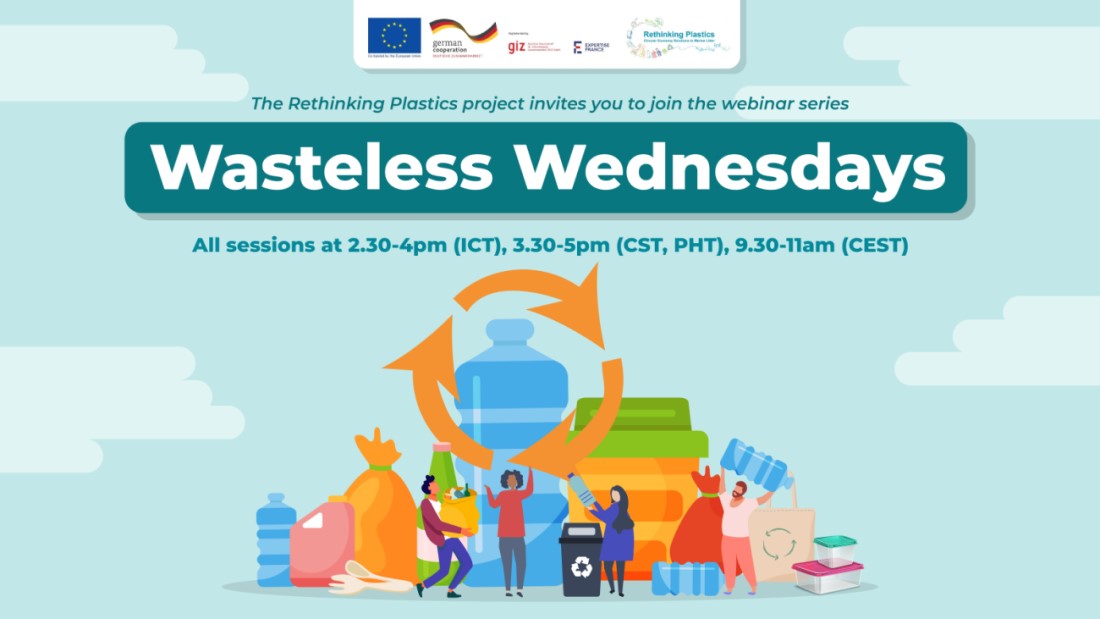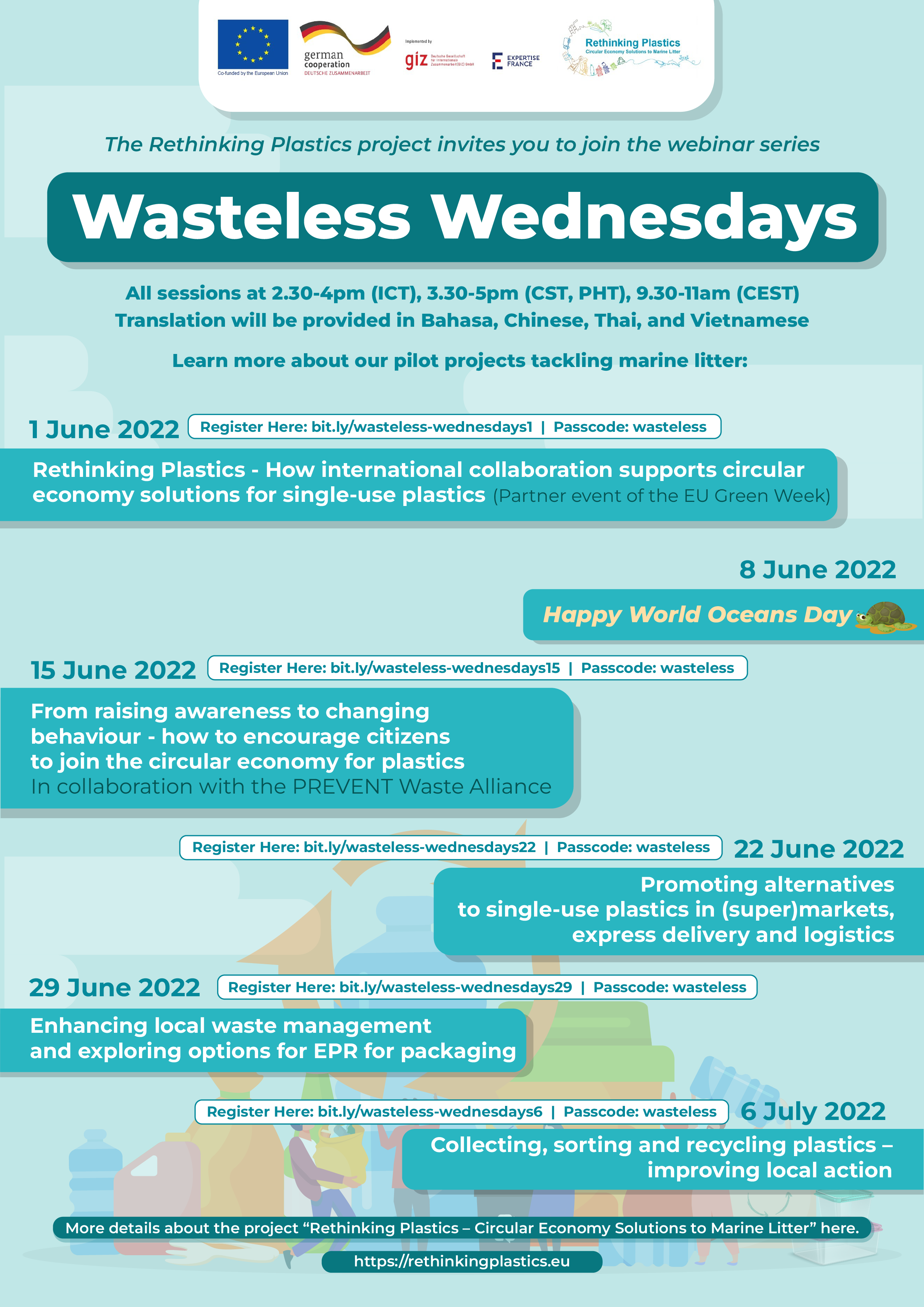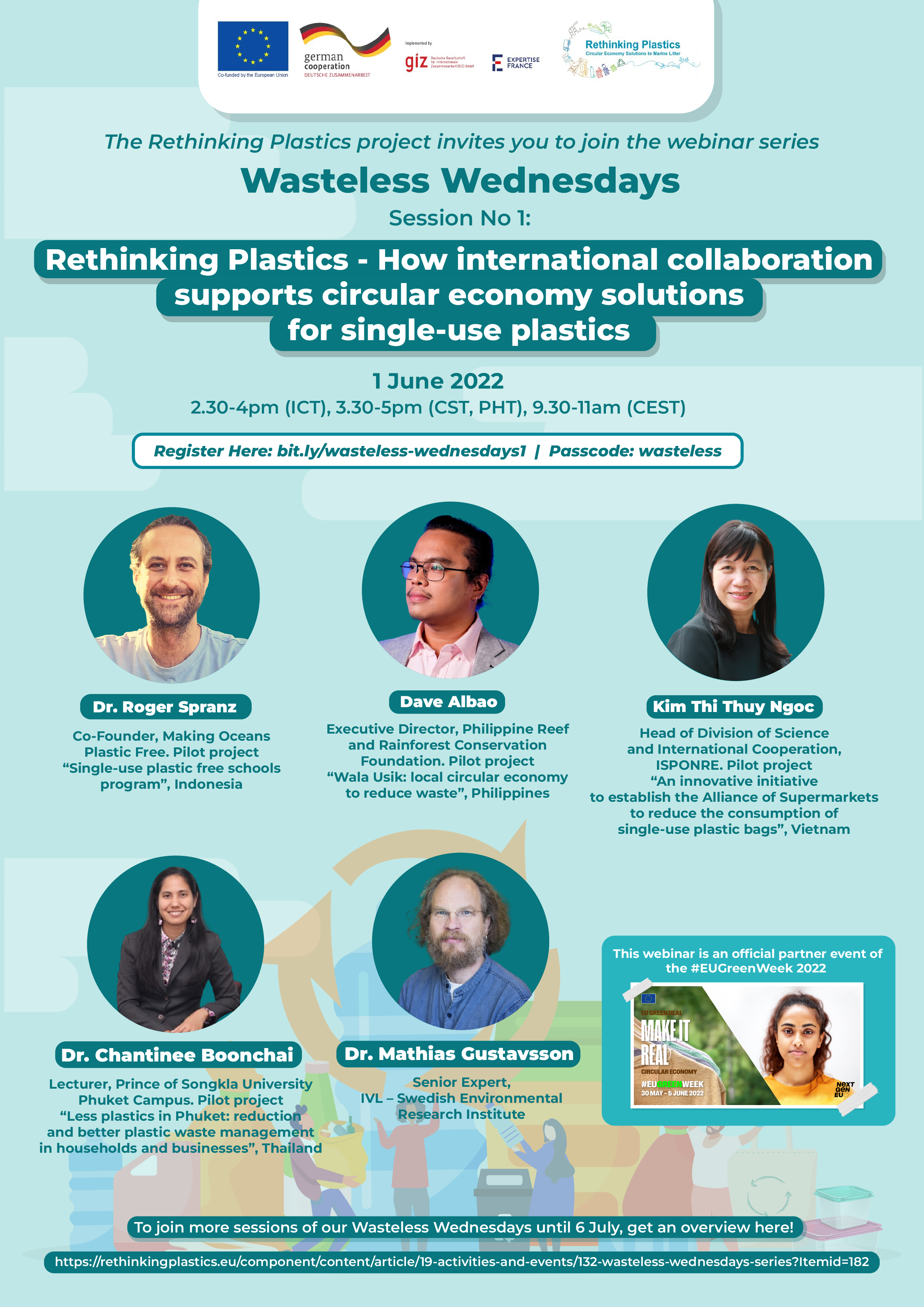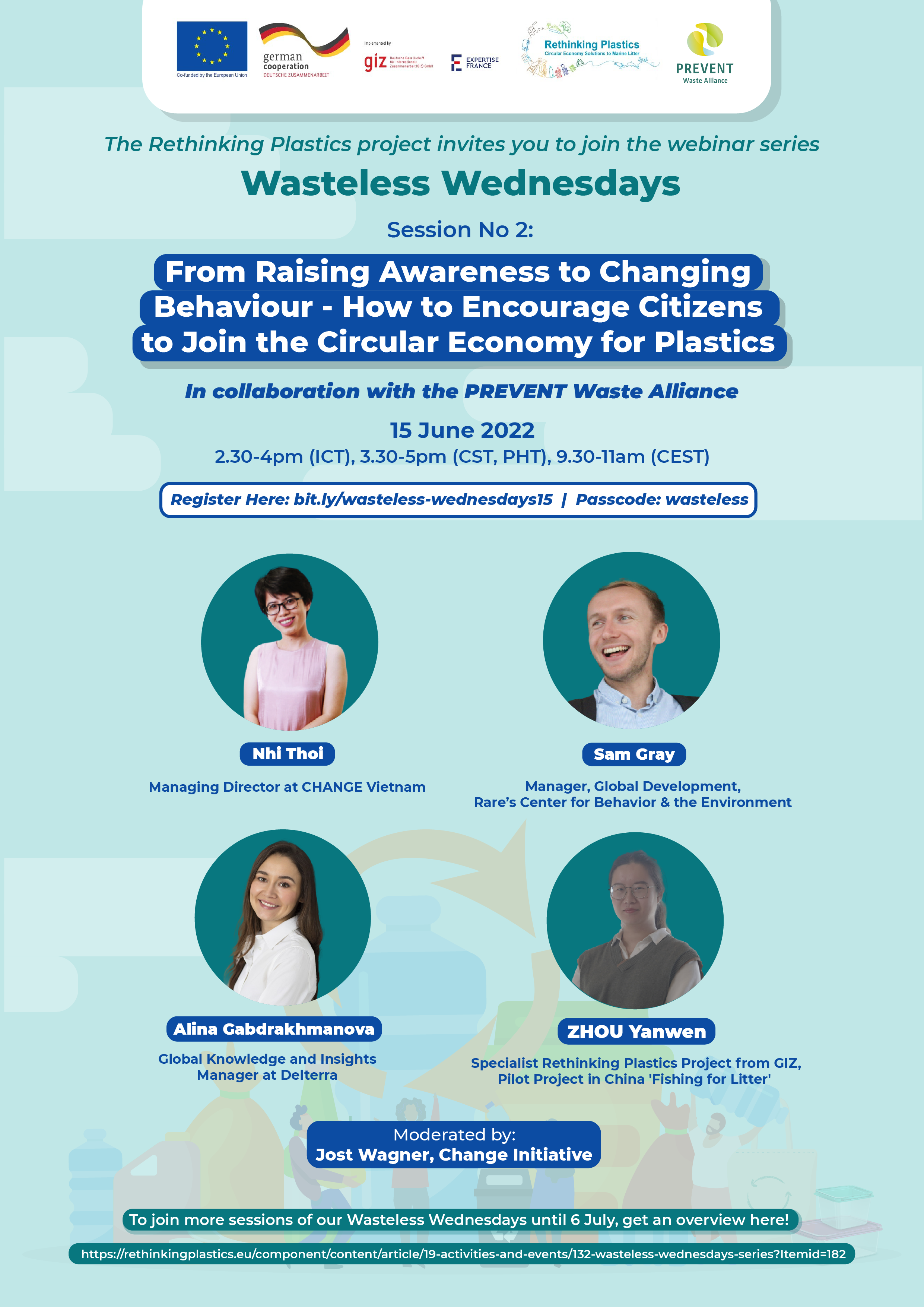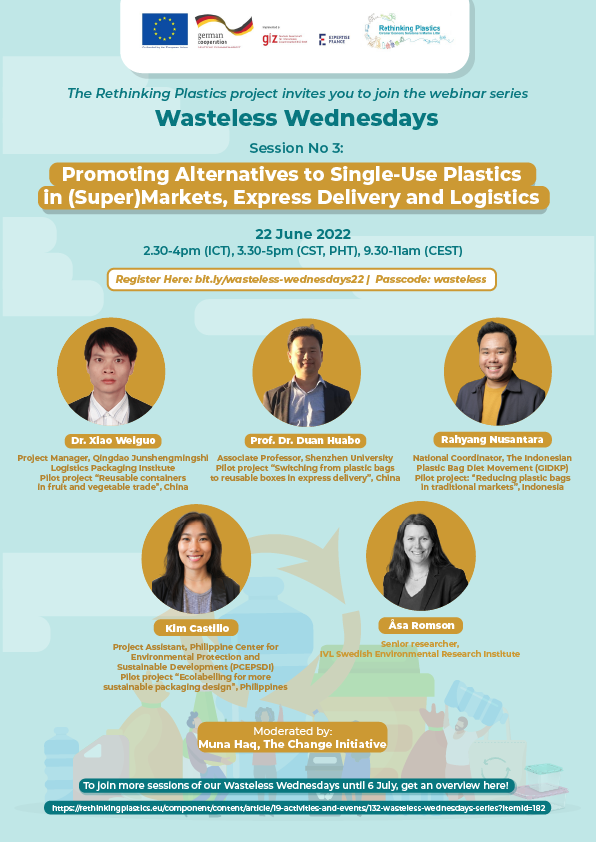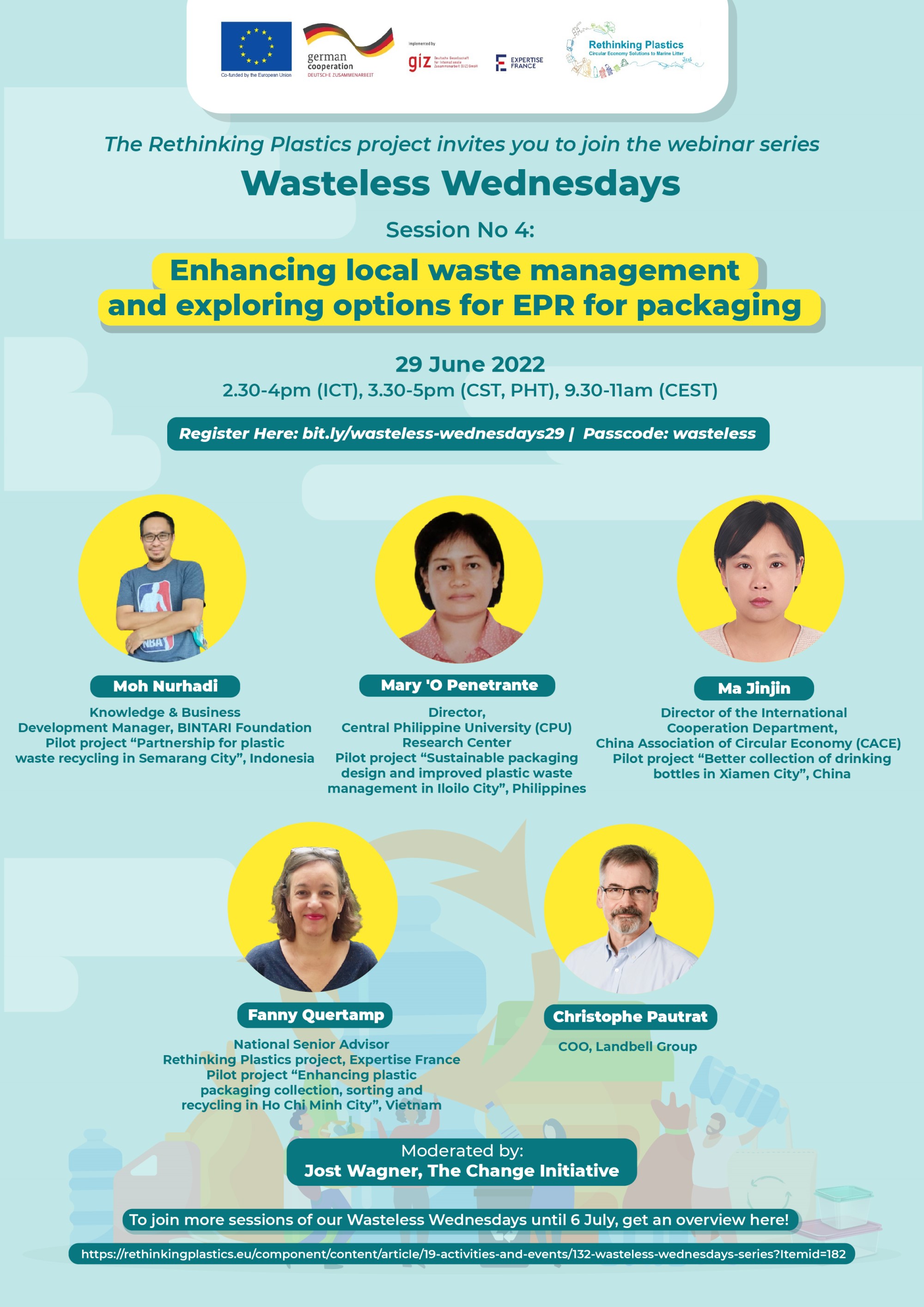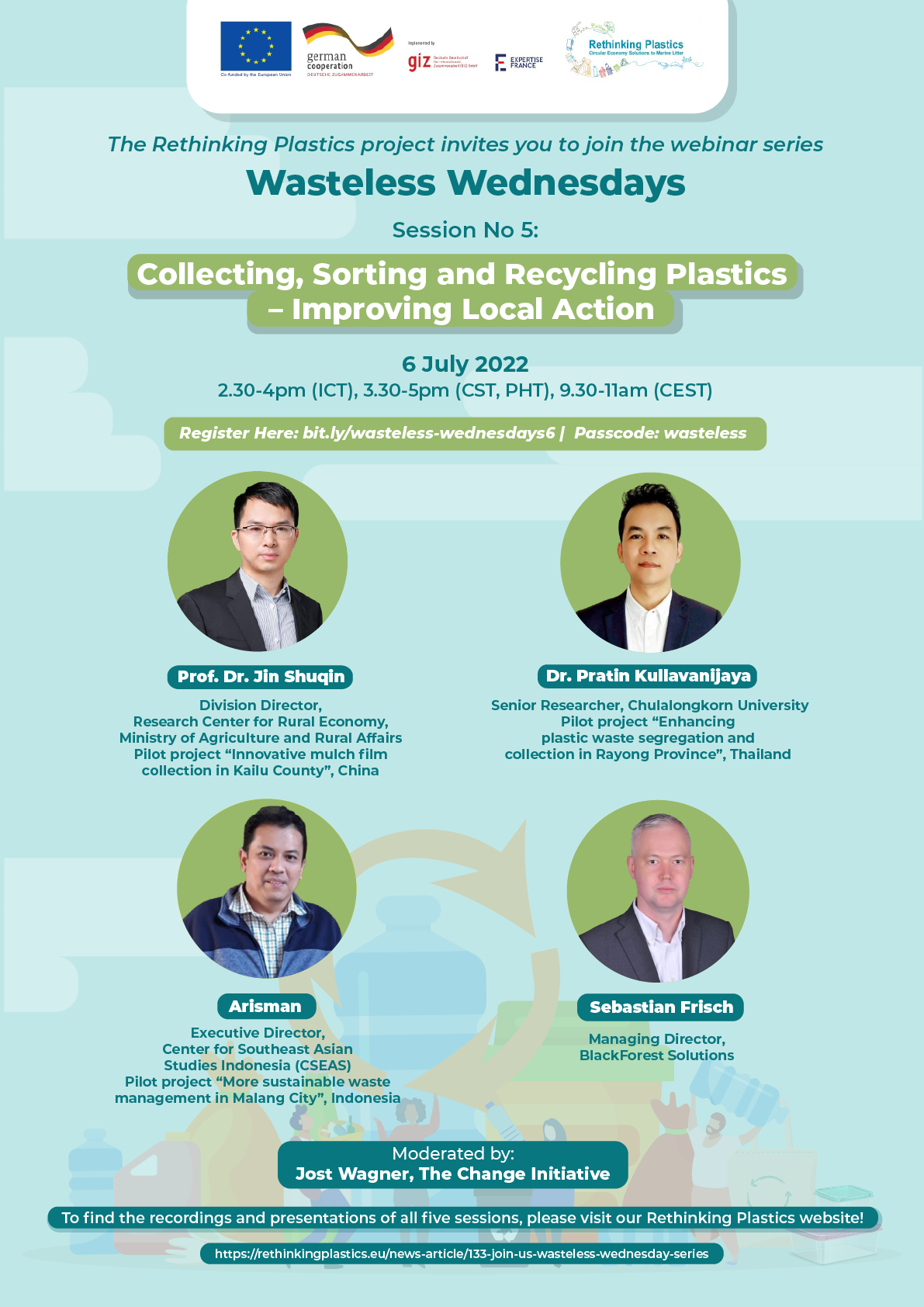Join us: Wasteless Wednesday Series, 1 June - 6 July
Between 1 June and 6 July, "Rethinking Plastics" hosted five events of the Wasteless Wednesday Series!
Participants could learn more about the pilot projects of 'Rethinking Plastics', our activities, achievements and learnings and what this can mean for the future development towards a Circular Economy for Plastics.
Where: online via WebEx
When: 1, 15, 22, 29 June and 6 July 2022
The ‘Wasteless Wednesdays’ webinar series ran from 1 June to 6 July to enhance regional exchange and share the expertise generated throughout the three years of the “Rethinking Plastics” project implementation with a specific focus on our pilot projects. All recaps and recordings are available with the links below.
Session 1
On 1 June, we kicked off the first session on ‘Rethinking Plastics - How international collaboration supports circular economy solutions for single-use plastics’. We showcased the benefits of international collaboration for the prevention of single-use plastics and the transition towards a circular economy. Learn more about successful cooperation for policy development as well as on the ground piloting of alternative packaging solutions and useful knowledge products that were developed. The session was an official partner event of the EU Green Week.
The presentations and recording are available here.
Session 2, 15 June:
From Raising Awareness to Changing Behaviour - How to Encourage Citizens to join the Circular Economy for Plastics - in collaboration with the PREVENT Waste Alliance
Many circular economy solutions, such as recycling, reuse and refurbishment schemes, will only be successful if people are aware of why a shift to a circular economy is needed and change their behaviour. The second webinar session built the bridge between successful awareness campaigns and the different levers of behaviour change that will help you develop even more effective approaches to encourage citizens to participate in a circular economy for plastics. Participants earned about successful campaigning and why behaviour change approaches pay off in terms of programmatic and financial results and had the opportunity to interact with experts and practitioners from Rare's Center for Behavior & the Environment, CHANGE Vietnam and Delterra and learn about concrete approaches like the “Fishing for Litter” project in China, supported by GIZ.
The presentations and recording are available here.
Session 3, 22 June:
Promoting Alternatives to Single-Use Plastics in (Super)markets, Express Delivery and Logistics
This third webinar session focussed on the prevention of single-use plastics by promoting more sustainable alternatives. The solutions that were presented include eco-labelling for packaging, reusable boxes and containers to replace plastic bags, and a comprehensive strategy to introduce alternative packaging on traditional markets.
The presentations and recording are available here.
Session 4, 29 June:
Enhancing Local Waste Management and Exploring Options for EPR for Packaging
The fourth session of the “Wasteless Wednesdays” series on 29 June shone a light on the topic “Enhancing local waste management and exploring options for EPR for packaging”. It looked at four of the “Rethinking Plastics” pilot projects with a scope on improving waste management systems and possibly contributing to the introduction of an EPR scheme. The selected approaches of the implementing partners vary from digital solutions and the collaboration with the informal sector to the improvement of collection and sorting procedures through innovation and partnerships.
The presentations and recording are available here.
Session 5, 6 July:
Collecting, Sorting and Recycling Plastics – Improving Local Action
The final session of the ‘Wasteless Wednesdays’ series was titled ‘Collecting, sorting and recycling plastics – improving local action’. It featured "Rethinking Plastics" pilot projects with a scope on improving waste management systems and possibly contributing to the introduction of an EPR scheme. The tested solutions of the implementing partners varied from supporting communities with new technology, educational campaigns at zero waste schools and the collaboration with the informal sector to the improvement of plastic use in agriculture for less plastic pollution.
The presentations and recording are available here.

